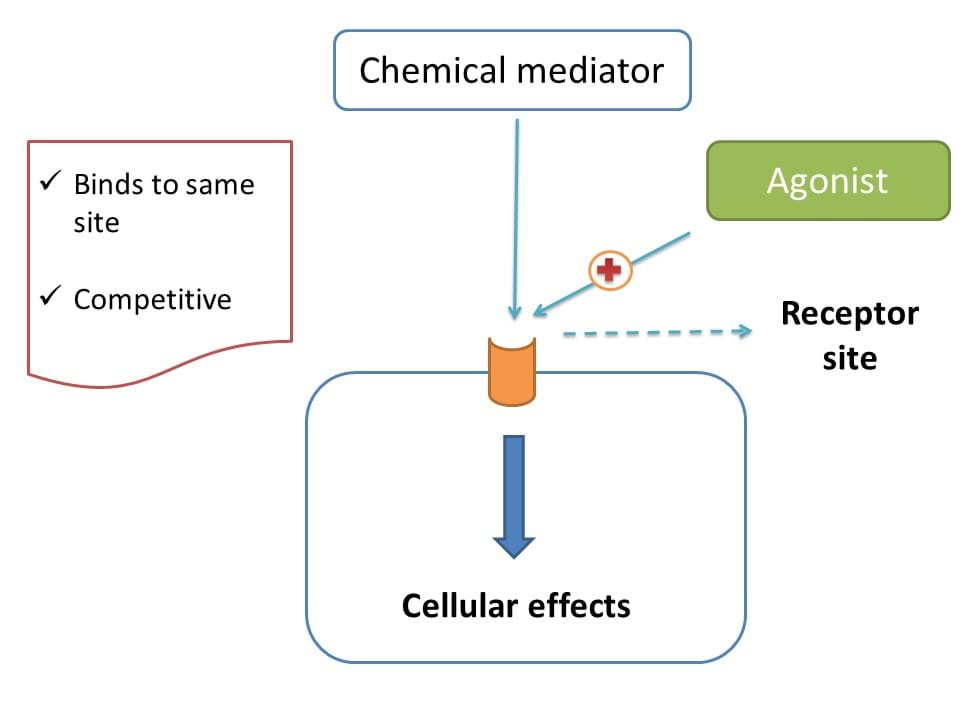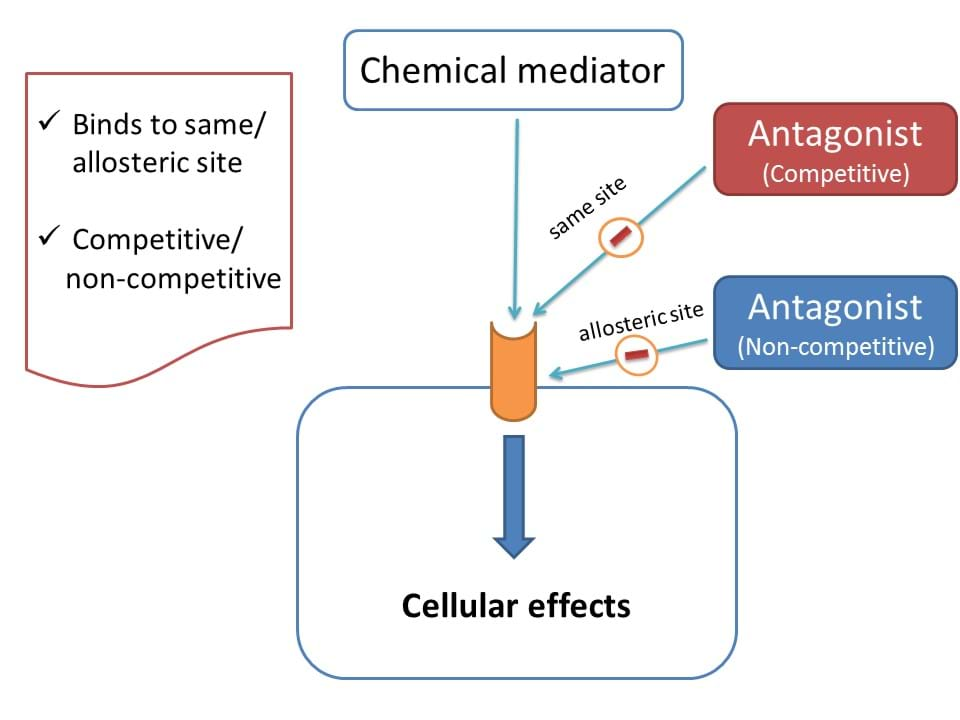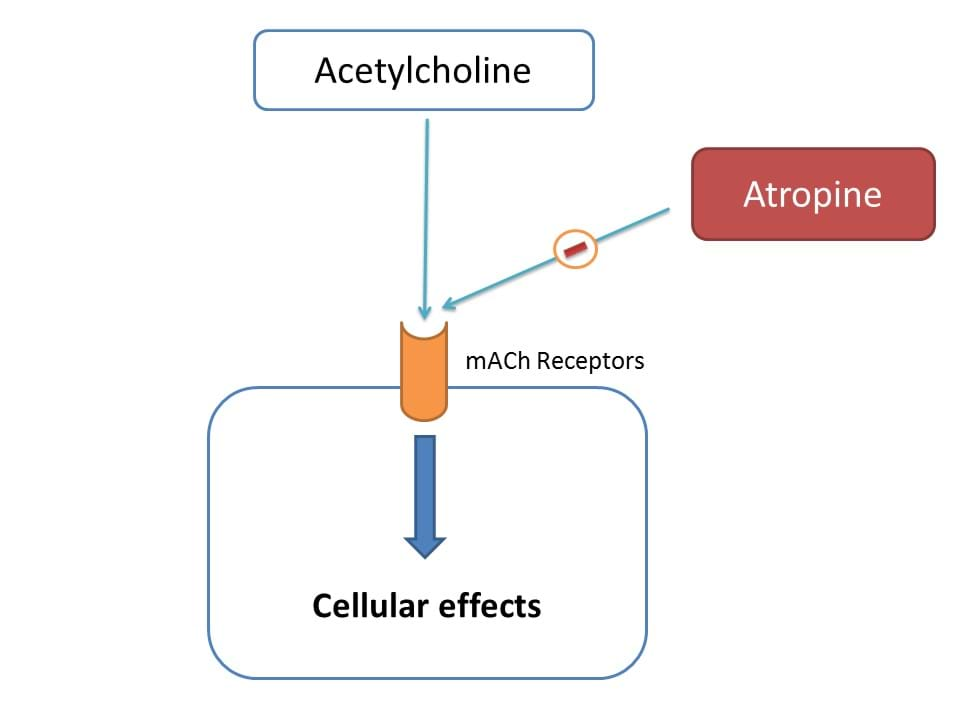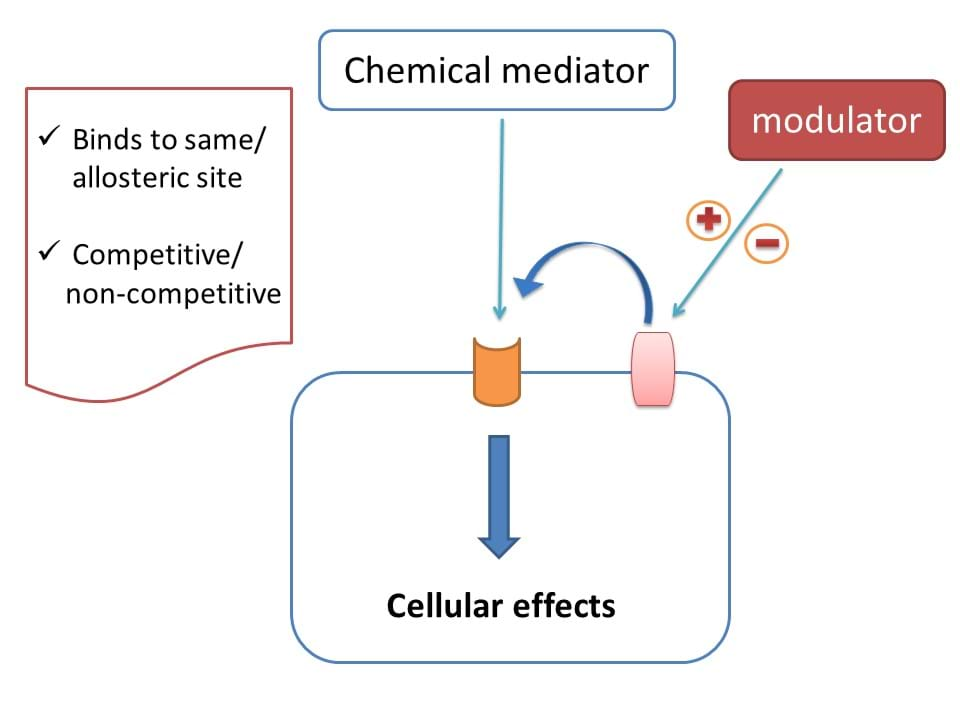Alprazolam is not a GABA-A agonist. Is it true?
by egpat Posted on 25-07-2017
It’s true. Alprazolam acts on GABAA receptors not as an agonist but as modulator. There is a little difference in the terminology such as agonist, antagonist and modulator.

Let’s see the right context of these terms.
Agonist
First, by the definition, agonist is a compound which binds to the same site as the chemical mediator does on the receptor and produces same cellular effect as the chemical mediator.

For example, ------ binds to the same site as GABA binds to GABAA receptor and acts like GABA. Hence it is an agonist on GABAA receptors.
So here, both chemical mediator and agonist bind to the same site and often competitive.
Antagonist
Antagonist is a compound which binds to the same binding site as the chemical mediator but after binding, it does not produce any cellular effect. In this way, antagonist prevents agonist to bind to the receptor site and thereby prevents the cellular effects.

For example, atropine is an antagonist on muscarinic acetylcholine receptors (mACh receptors) and prevents muscarinic actions of acetylcholine.

An antagonist may
Modulator
On the other hand, modulator is a compound which does not binds to the same as the chemical mediator doe, but binds to another site. other than the chemical mediator and may act either similar or opposite to the chemical mediator.

If it acts similar to the mediator it will be called as positive modulator else if it acts oppositely, it is a negative modulator.
Benzodiazepines like alprazolam act as positive modulators on GABAA receptors. They bind to their own receptors located at an accessory position on GABAA receptors. So they are not agonists but modulators.
Once they bind to their receptors, they promote the binding of GABA on GABAA receptor thereby open chloride channels. This causes a hyperpolarization in the cell.